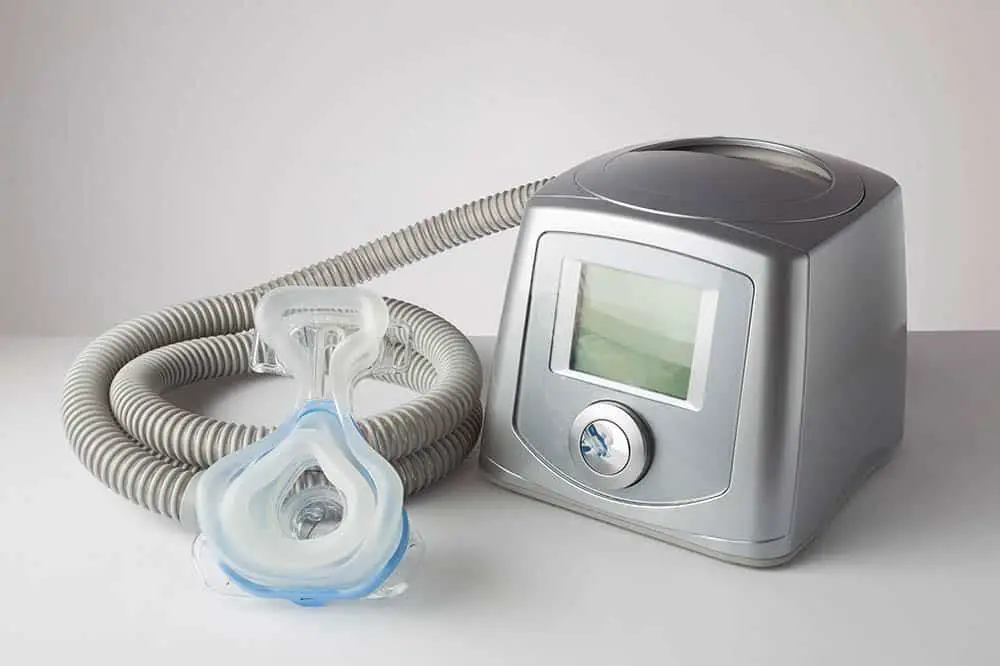Continuous Positive Airway Pressure is a form of treatment that is used for those that suffer from sleep apnea.
There are lots of studies and reports revolving around the use of CPAP for sleep apnea patients, including the benefits and risks that come along with this form of therapy.
If you have been recommended CPAP therapy to help you to manage your condition, you might be concerned about the effects that it can have on your body.

However, are these side effects good or bad? Some would argue that it can be both of these things.
In this article, we are going to tell you about all of the different heart-related risks and benefits that may come along with continuous positive airway pressure, and what the results could look like in some circumstances.
To find out more about this, just keep reading.
Do People With Sleep Apnea Have An Increased Risk of Heart Problems?
People that suffer with sleep apnea are more likely to have an increased risk of heart problems.
Heart disease is one of the leading causes of death around the world, and there are lots of different things that can increase your chances of developing heart disease.
Some things that can increase your risk of developing heart disease are eating an unhealthy diet, not getting enough physical activity, drinking too much alcohol, and smoking.
As well as the many lifestyle habits that can increase the risk of heart disease, there are also health conditions that can put you at a higher risk.
Some of these health conditions can include high blood pressure, unhealthy cholesterol levels, diabetes, and obesity.
If sleep apnea is left untreated, it can also lead to you being at a higher risk of heart arrhythmias and cardiovascular disease.
It is estimated that those who suffer from sleep apnea are actually around 2 to 4 times more likely to go on to develop heart arrhythmias, which are abnormal heart rhythms, than people without sleep apnea.
As well as this, sleep apnea can increase your risk of heart failure by a huge 140% and the risk of coronary heart disease by 30%.
Can CPAP Cause Heart Problems?
CPAP treatment is not known to cause any heart problems. In fact, studies surrounding CPAP and heart problems have shown the opposite of this.
Many studies have shown that CPAP is actually associated with a lower incidence of fatal and non-fatal cardiovascular events in patients with obstructive sleep apnea.
Can Heart Damage From Sleep Apnea Be Reversed?
Heart damage that has been caused by sleep apnea can improve through the use of CPAP. Using CPAP machines to treat sleep apnea can improve heart function and even work to prevent heart failure.
It is known that people with obstructive sleep apnea will stop breathing momentarily while they are asleep. CPAP therapy involves the use of a machine that will gently force air into the breathing passages to keep them open.
This therapy can have many added benefits for the heart.
Lots of studies have taken place to find out if CPAP therapy does have any additional benefits when it comes to the heart and its function, and many have reported that it did.
It is thought that CPAP therapy can have the ability to reduce the thickness of the heart muscle wall, though it also showed a big improvement in cardiac function.
As well as this, the stiffness of the cardiac chambers was also reduced following CPAP therapy.
Can CPAP Reverse Heart Disease?
It is known that you are not able to reverse heart disease, as this would imply that you once had heart disease, and now you no longer do.
Though you might not be able to completely reverse heart disease, you can slow down the amount of time that it takes to progress and worsen.
There are some professionals that believe that treating obstructive sleep apnea can work to prevent or improve heart issues.
One of the best ways that you can treat obstructive sleep apnea is through the use of continuous positive airway pressure, which will keep you breathing steadily throughout the night.
Not only will this correct your sleep apnea and reduce the symptoms that are usually presented with this condition, but it will also prevent your blood oxygen levels from falling while you are asleep and allow you to get better sleep.
One of the best things about this type of therapy is that it can help to lower the stress on your heart. Interestingly, for those with atrial fibrillation, CPAP can be used to help control their irregular heartbeat.
Can CPAP Lower Heart Rate?
CPAP can work to lower your heart rate, and by keeping a person’s airway open, their oxygen levels will become much steadier through the night. This, in turn, will work to lower their heart rate.

Damon Wiseley is a Registered Respiratory Therapist and Certified Pulmonary Function Technologist.
